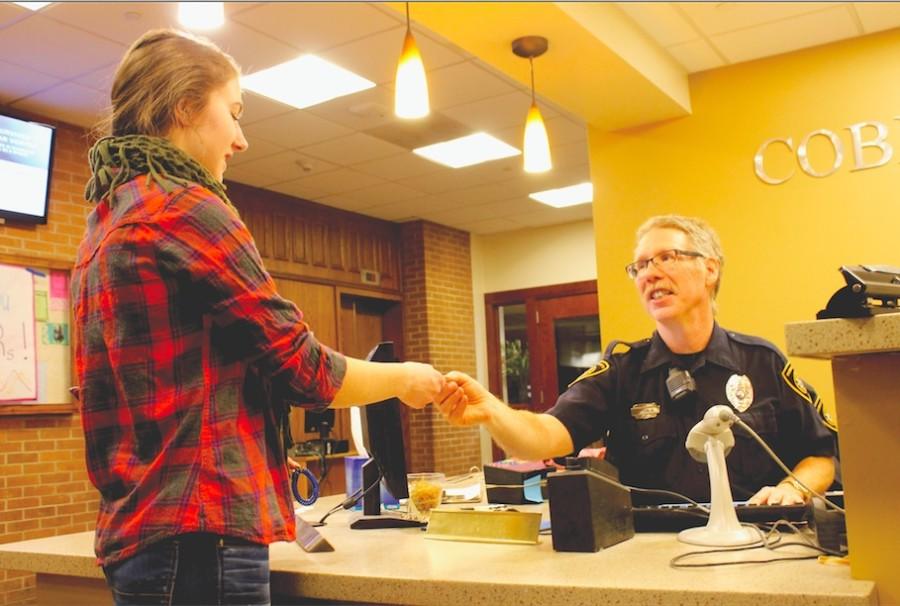
Over the years, Milwaukee Public Schools have struggled with low test scores, low graduation rates, startling gaps in racial achievement and administrative inefficiencies. Several school board and superintendent combinations have been unable to right the gigantic, sinking ship that is MPS.
As a result, the federal government identified MPS as a district in need of improvement. Mayor Tom Barrett and Gov. Jim Doyle asked state legislators to explore what it would take to transfer operation of MPS to the mayor of Milwaukee, arguing such that a change would move the district in the right direction.
Currently, Milwaukeeans elect nine school board members who choose a superintendent and vote on budget and curriculum issues.
State legislators have created two separate models for governance reform in MPS. State Sen. Lena Taylor, who represents Milwaukee’s north and west sides, has drafted a bill that would endow the mayor with the power to appoint a superintendent. Citizens would still elect a school board under Taylor’s proposal, but it would serve as an advisory panel and would be a resource for parents interested in getting involved with the school system.
Another proposal, drafted by state Sen. Spencer Coggs and Assemblywoman Tamara Grigsby, would create a partnership board, which would be split between mayoral appointments and elected members.
Both camps agree something needs to be done to improve the performance of MPS.
The problems MPS faces are not unique to Milwaukee. Public school districts such as those in Boston, Chicago and Detroit have also struggled. All of these cities have gone through some kind of governance reform, but questions still remain over the effectiveness of those reforms. Locally, people wonder if such change would have any positive effect on MPS.
Problems district wide
The problems in MPS can be attributed, in part, to the unwieldy size of the district. MPS served about 87,360 students in 2007-’08, making it the largest school district in Wisconsin and the 29th largest in the United States.
Such immensity naturally causes problems in the district’s administration and management, said Pedro Colon, the state assembly representative for much of Milwaukee’s south side who co-sponsors Taylor’s bill. Colon said MPS inefficiently uses financial resources and wastes millions of dollars each year.
This waste, which includes dollars from taxpayers across the state, is part of the reason legislators from outside Milwaukee would consider voting to give Milwaukee’s mayor control of the schools.
“It’s in everyone’s best interest that Milwaukee does well,” Colon said.
Infrastructural inefficiencies are also hurting the district and the city, as massive school buildings sit empty and decrease property values in Milwaukee neighborhoods, he said.
Peter Blewett, vice president of the school board, points to the inequalities between urban school districts such as MPS and other districts as another root of the district’s problems.
“MPS starts so far down the ladder compared to other districts,” Blewett said.
The poverty that is rampant in the district (71 percent of MPS students qualify for reduced-price or free lunches) also negatively impacts the performance of the system, said Robert Lowe, a professor in the College of Education. These problems are present in many urban school districts.
“We’ve never done a good job in the U.S. of educating the poor,” he said.
Homelessness and high mobility among students also negatively affect performance, Lowe said.
Aside from the structural and socioeconomic problems in MPS, the district has also struggled with low student attendance, high incidences of behavioral problems and low graduation rates.
Perhaps the most glaring problem in MPS is the district’s poor performance on the Wisconsin Knowledge and Concepts Examination, a statewide standardized test issued to third- through eighth-graders and to high school sophomores. The WKCE is used to determine students’ proficiency in reading and math, and is used by the federal government’s No Child Left Behind Act to determine whether districts in the state meet annual progress goals.
During the 2007-’08 school year, only 57.8 percent of MPS students achieved reading proficiency on the exam, compared to 81.2 percent statewide. In math, 42.1 percent of tested students in the district achieved proficiency, while state counterparts were at 75.2 percent, according to district test scores.
Why mayoral control
The tasks involved in solving these problems are complicated and labor-intensive. The question becomes: What kind of governance would be most effective in rectifying the problems?
One of the primary arguments for mayoral control deals with accountability. If the mayor appoints the superintendent, it is more apparent to citizens who is responsible for the success or failure of the schools, said Martin Scanlan, an assistant professor in the College of Education.
Currently, “the superintendent is hired to follow the whims of the school board,” Colon said. An appointed superintendent would be accountable to the mayor, and, thereby, accountable to the citizens, he said.
Consistency in leadership is an added concern in the district. Over the past 10 years, there have been eight different school board presidents, while there have been only four mayors in the past 40 years, Taylor said.
“This fragmentation isn’t healthy for the students,” she said.
The pursuit of a federal grant, called “Race to the Top,” is another reason Milwaukee should change its school governance, Colon said.
Before providing the grant, the Department of Education wants to ensure struggling districts are investing in ways to improve. A change in governance would be integral in demonstrating the state’s commitment to improvement, Colon said. Doyle has already passed a series of bills into law aimed toward improving Wisconsin’s application for the grant.
Taylor said a change in governance would show the Department of Education that Milwaukee is serious about creating a system that provides positive outcomes for its students.
If nothing else, Scanlan said mayoral control would “shake up a system that has really struggled for decades.”
The school board’s case
The school board in Milwaukee arguably has the most to lose if mayoral control of MPS passes the state Legislature. Michael Bonds, school board president, said under Taylor’s proposal, the board would be stripped of its legislative powers to set budgets and curriculum. Bonds said he would leave his post if such a change occured.
He said keeping the current school board intact would best serve MPS because of the steps it has already taken toward improvement.
“We directed $115 million back into the classroom” through arts programs, ninth-grade sports, early childhood programs, a universal breakfast program and the driver’s education program, Bonds said.
Bonds and Blewett are also proud of progress made in the district with Project Lead the Way, a federal program geared toward getting students interested in science, technology, engineering and mathematics (STEM) education.
Milwaukee leads the nation in percentage of women and minorities in STEM courses, attracting the attention of the National Action Council for Minorities in Engineering. NACME launched an initiative in Milwaukee that will provide up to $90,000 for minority engineering students, Blewett said.
Another aspect of the argument to stick with the current school board has to do with democratic representation, Blewett said.
“It would be wrong to strip Milwaukeeans of their democratic enfranchisement,” he said.
Further, even if the Legislature does pass one of the drafted bills, the debate over the district’s governance would not end there, Blewett said. A Public Policy Forum report from February found that governance reform “happens over many years and may occur in several incarnations.” Detroit Public Schools, for example, has gone back and forth between governance models three times since 1999.
Changing governance opens a “can of worms … that just doesn’t go away,” Blewett said.
There is also some skepticism over the financial impact of the legislation passed to help attract the federal “Race to the Top” funds and whether the one-time grant would be enough to justify changing state law, Blewett said.
Additionally, mayoral control requires mayors to dedicate themselves to education, Scanlan said. In Milwaukee, it’s not clear whether Barrett will have the same dedication that mayors in Boston and Chicago have demonstrated, he said. The question of whether or not future mayors will be as enthusiastic about appointing superintendents will always persist, Scanlan said.
What’s next for MPS
Colon said MPS governance reformation needs to be taken care of in the first half of December before the board hires a replacement for current superintendent William Andrekopoulos, who is retiring next June.
Barrett’s recent entry into the governor’s race threw another wrench into an already complicated situation.
Bonds said he hopes the announcement will influence Barrett to drop his quest to take over. Colon said Barrett’s announcement increases the pressure on the state Legislature to quickly pass some kind of reform measure. Blewett said Barrett’s run will probably help get some kind of reform passed through the Legislature.
“If something passes, people will be sorry,” he said.
The political push-and-shove surrounding the debate has muddled what the ultimate goal should be. The real goal, Scanlan said, is to achieve effective governance at the district level.
For Sen. Taylor, the debate isn’t about the adults involved. It’s about creating a better atmosphere for growth and learning. Although Blewett’s authority would be stripped by Taylor’s bill, he agreed.
“Our focus should be achievement and giving students the education they need,” he said.



